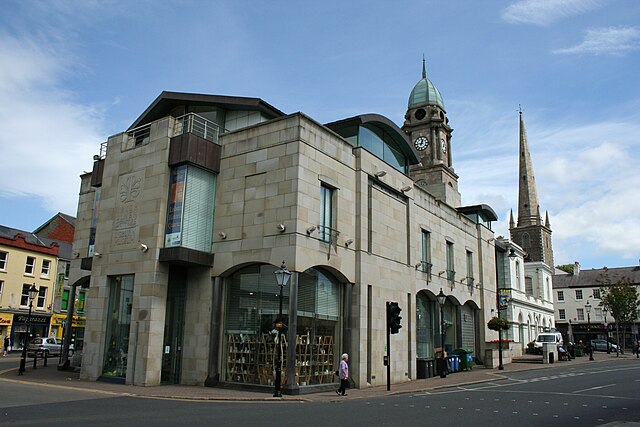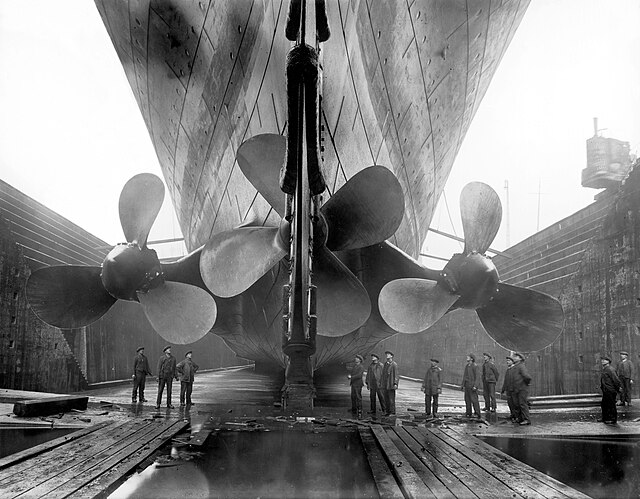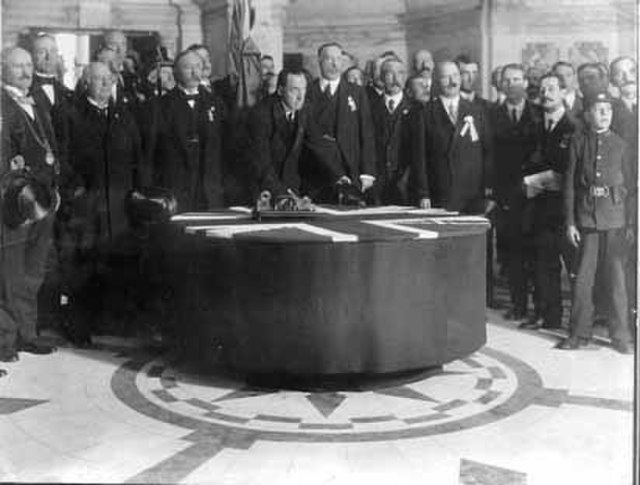Lisburn is a city in Northern Ireland. It is 8 mi (13 km) southwest of Belfast city centre, on the River Lagan, which forms the boundary between County Antrim and County Down. First laid out in the 17th century by English and Welsh settlers, with the arrival of French Huguenots in the 18th century, the town developed as a global centre of the linen industry.
Irish Linen Museum and Christ Church Cathedral
Market Square in 1880
Barbour's Hilden Mills, c 1880
Lisburn Volunteers in Market Place firing a feu de joie in honour of the Dungannon Convention1782.
Northern Ireland is a part of the United Kingdom in the north-east of the island of Ireland that is variously described as a country, province or region. Northern Ireland shares an open border to the south and west with the Republic of Ireland. At the 2021 census, its population was 1,903,175, making up around 3% of the UK's population and 27% of the population on the island of Ireland. The Northern Ireland Assembly, established by the Northern Ireland Act 1998, holds responsibility for a range of devolved policy matters, while other areas are reserved for the UK Government. The government of Northern Ireland cooperates with the government of Ireland in several areas under the terms of the Belfast Agreement. The Republic of Ireland also has a consultative role on non-devolved governmental matters through the British–Irish Governmental Conference (BIIG).
RMS Olympic, sister ship of Titanic, photographed in dry dock, Belfast
Signing of the Ulster Covenant in 1912 in opposition to Home Rule
Crowds in Belfast for the state opening of the Northern Ireland Parliament on 22 June 1921
James Craig (centre) with members of the first government of Northern Ireland








